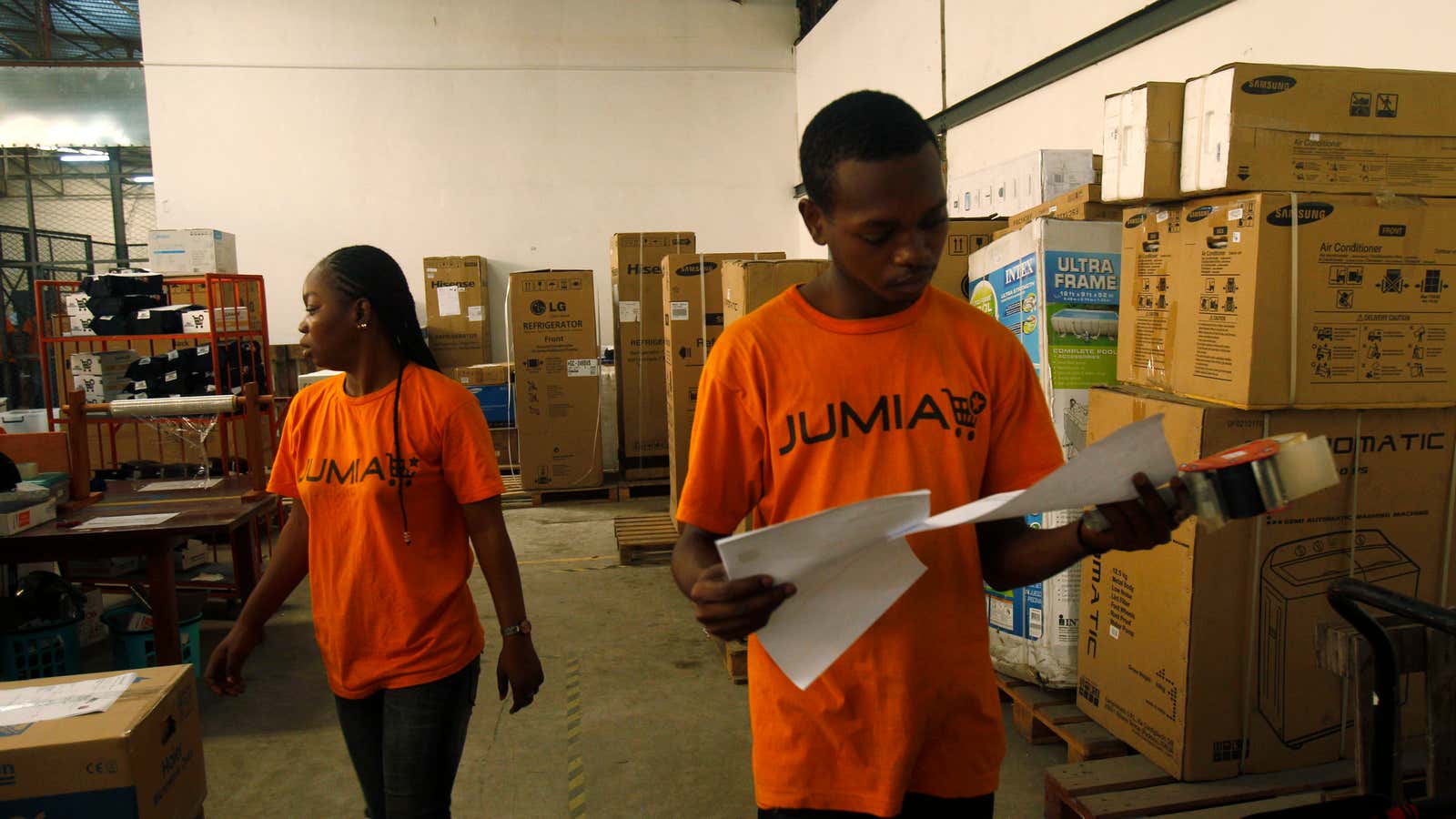In response to Covid-19 outbreaks across the continent, Jumia—the largest pan-African e-commerce operator, made a shift in its business model.
The e-commerce marketplace operator de-emphasized its phone and consumer electronics inventory, shifting focus to everyday product categories including groceries and beauty products which rose in demand. The move was partly due to emerging supply chain constraints given widespread restrictions on travel as well.
The inventory adjustment came months after Jumia exited three of its African markets to reduce operating costs. And, as its latest earnings results show, the moves are yielding results as operating losses narrowed to €28 million ($33 million) in the second quarter—a nearly 50% drop compared to a year ago. It’s a major mark for a company which has long made headlines for widening losses—Jumia’s losses notably widened as recently as the fourth quarter of 2019.
But Jumia shares fell by more than 18% on Wednesday (Nov. 11) morning New York time as investors worried about the 17.7% drop in revenue to €33.7 million during the quarter. In the last few months there has been a rising investor expectation Jumia would benefit disproportionately from e-commerce demand in Africa. Most of the revenue drop was driven by a 53% reduction in “first party” revenue, referencing sales of merchandise bought and sold by Jumia.
Gross merchandise volume dropped 28% year on year to €187.3 million ($220 million), reflecting the drop in sales of consumer electronics and phones with the company looking to optimize for “smaller-sized, more profitable orders.” Even though average order value had dropped 24% year on year, the results show higher profit margins after fulfillment per order. In total, the company’s marketplace revenue grew by 19% year on year to €23.4 million.
In the wake up of the Covid-19 pandemic, e-commerce operators across Africa reported seeing a spike in their operations as middle class consumers began to explore online shopping during lockdowns and coronavirus-related restrictions. It is hoped the shift has helped ease one of the highest hurdles faced by e-commerce businesses in African markets—a lack of trust.
While many of these ventures have attempted to engineer a shift in local social behavior in customers, the pandemic’s restrictions have meant the option of shopping online is finally getting the valuable good PR and a marketing boost out of necessity and safety.
For Jumia, in particular, that took the form of a sharp spike in both customer demand for groceries and essentials as well as increased inquiries from partner brands seeking alternative sales channels with their physical outlets shut down. Executives suggest that while the pandemic’s impact has not been a net positive for its business what has become clear, at least for now, is that the accelerated shift in its inventory—from consumer electronics to everyday products—will be a lasting effect.
Jumia’s earnings also reflect a key milestone as it pursues long-term profits: for the first time at group level, gross profit after delivery, sales and marketing costs was positive.
The numbers, which show “underlying improvements of fundamentals and efficiency,” suggest Jumia’s “path to profitability is becoming clearer,” says Sacha Poignonnec, chief executive. Poignonnec has previously claimed Jumia will become profitable by 2022.
To meet that target, the company is also increasingly looking beyond its e-commerce marketplace as a core offering. It is primed to spin off JumiaPay, its in-house payments platform, for third party usage as it eyes a share of the growing electronic payments market across African economies.
In the third quarter, Jumia’s payments volume reached €48 million—a 50% year-over-year increase. The company has also opened up its logistics service to third party users across 11 countries in Africa.
Sign up to the Quartz Africa Weekly Brief here for news and analysis on African business, tech, and innovation in your inbox
